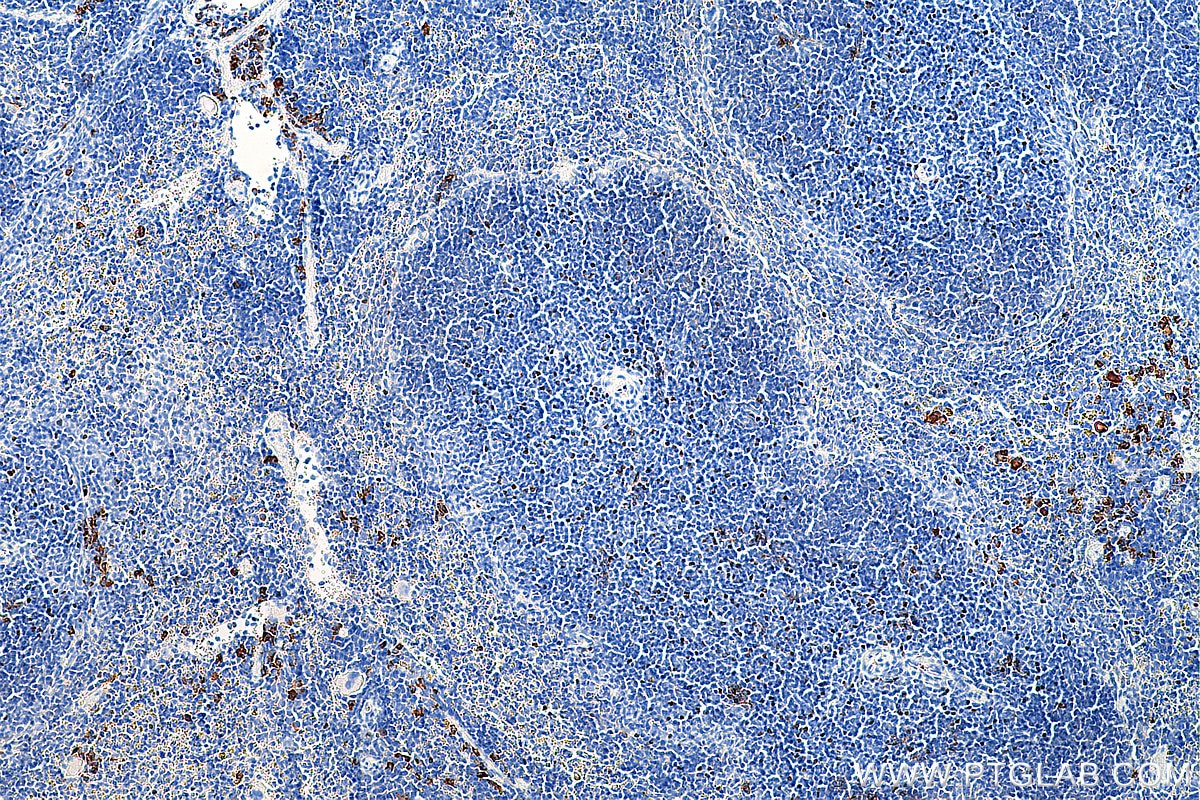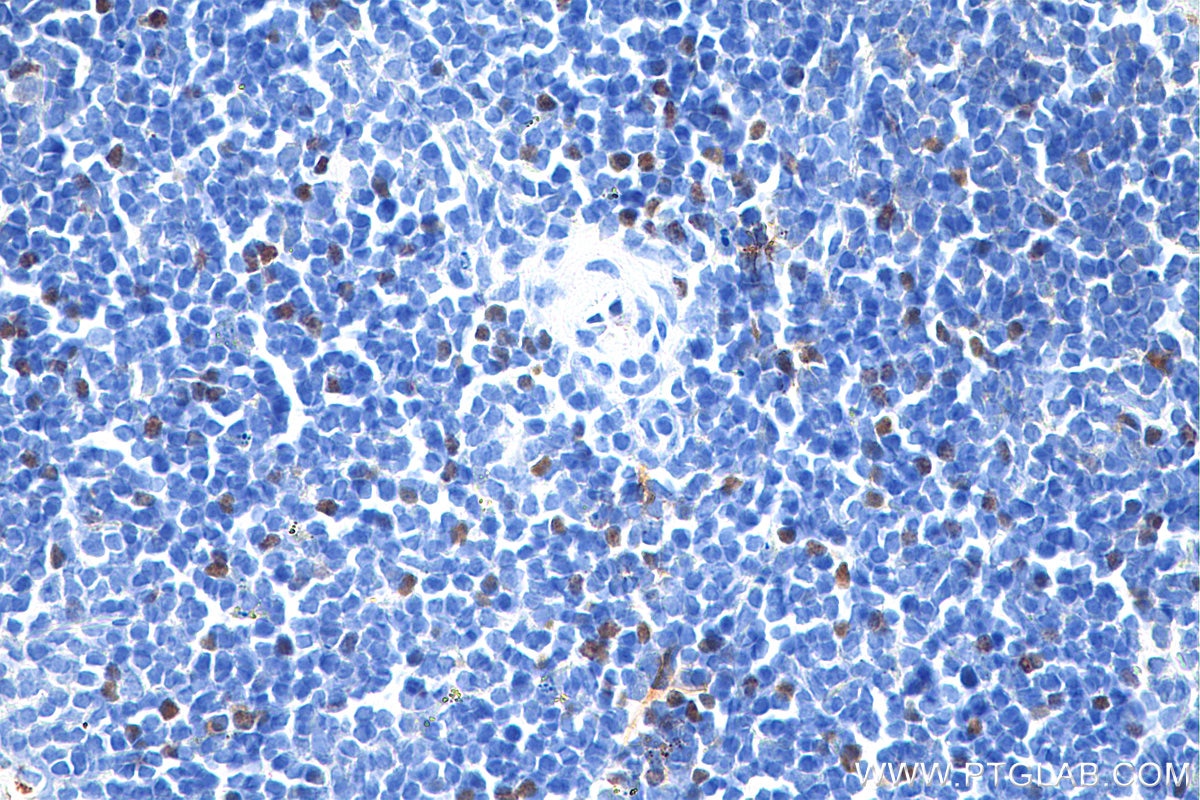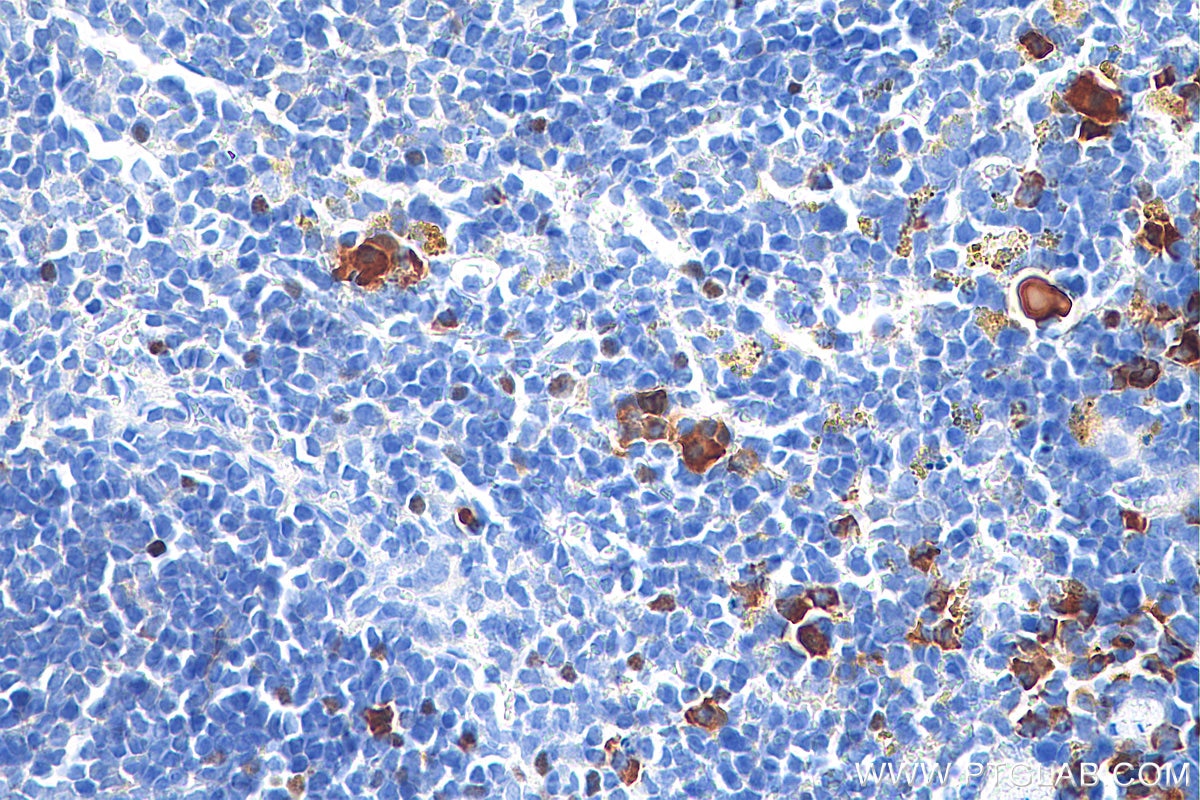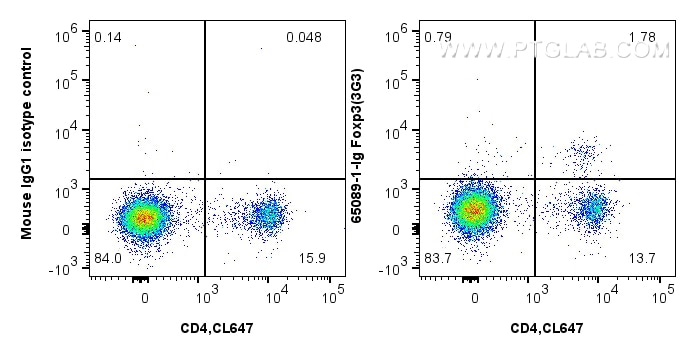Tested Applications
| Positive IHC detected in | mouse spleen tissue Note: suggested antigen retrieval with TE buffer pH 9.0; (*) Alternatively, antigen retrieval may be performed with citrate buffer pH 6.0 |
| Positive FC (Intra) detected in | mouse splenocytes |
| Positive FC detected in | mouse splenocytes |
Recommended dilution
| Application | Dilution |
|---|---|
| Immunohistochemistry (IHC) | IHC : 1:50-1:500 |
| Flow Cytometry (FC) (INTRA) | FC (INTRA) : 0.25 ug per 10^6 cells in 100 μl suspension |
| Flow Cytometry (FC) | FC : |
| This reagent has been tested for flow cytometric analysis. It is recommended that this reagent should be titrated in each testing system to obtain optimal results. | |
| Sample-dependent, Check data in validation data gallery. | |
Published Applications
| IHC | See 2 publications below |
| IF | See 7 publications below |
Product Information
65089-1-Ig targets Foxp3 in IHC, IF, FC (Intra) applications and shows reactivity with Mouse samples.
| Tested Reactivity | Mouse |
| Cited Reactivity | mouse |
| Host / Isotype | Mouse / IgG1, kappa |
| Class | Monoclonal |
| Type | Antibody |
| Immunogen |
N/A Predict reactive species |
| Full Name | forkhead box P3 |
| GenBank Accession Number | BC132333 |
| Gene Symbol | Foxp3 |
| Gene ID (NCBI) | 20371 |
| RRID | AB_2918392 |
| Conjugate | Unconjugated |
| Form | Liquid |
| Purification Method | Affinity purification |
| UNIPROT ID | Q99JB6 |
| Storage Buffer | PBS with 0.09% sodium azide, pH 7.3. |
| Storage Conditions | Store at 2-8°C. Stable for one year after shipment. |
Background Information
Foxp3 (forkhead box P3), also named as IPEX, JM2 and scurfin, is a member of the forkhead transcription factor family and is essential for normal immune homeostasis (PMID: 11138001; 20429413). Foxp3 is specifically expressed in CD4+ CD25+ regulatory T cells and is crucial for their development and suppressive activity (PMID: 12612578; 12612581). In scurfy mouse, disruption of Foxp3 results in the fatal lymphoproliferative disorder attributed to the lack of an immune-suppressive component in the immune system (PMID: 25683611; 11138001). Similar to mice, genetic defects in human Foxp3 are the cause of immunodeficiency polyendocrinopathy, enteropathy, X-linked syndrome (IPEX) which also known as X-linked autoimmunity-immunodeficiency syndrome (PMID: 11137993).
Protocols
| Product Specific Protocols | |
|---|---|
| FC protocol for Foxp3 antibody 65089-1-Ig | Download protocol |
| IHC protocol for Foxp3 antibody 65089-1-Ig | Download protocol |
| Standard Protocols | |
|---|---|
| Click here to view our Standard Protocols |
Publications
| Species | Application | Title |
|---|---|---|
J Immunother Cancer ADRB2 inhibition suppresses cancer immune evasion by regulating tumor SOX10-PD-L1 axis and T cell function | ||
Thorac Cancer Adiponectin-expressing Treg-containing T cell fraction inhibits tumor growth in orthotopically implanted triple-negative breast cancer | ||
Mater Today Bio Engineering exosomes from fibroblast growth factor 1 pre-conditioned adipose-derived stem cells promote ischemic skin flaps survival by activating autophagy | ||
Cell Rep FBXO38 mediates FGL1 ubiquitination and degradation to enhance cancer immunity and suppress inflammation | ||
Adv Sci (Weinh) Targeting L-Selectin Lymphocytes to Deliver Immunosuppressive Drug in Lymph Nodes for Durable Multiple Sclerosis Treatment |
Reviews
The reviews below have been submitted by verified Proteintech customers who received an incentive for providing their feedback.
FH Shriya (Verified Customer) (10-13-2025) | Anti-Mouse Foxp3 (3G3)
|










